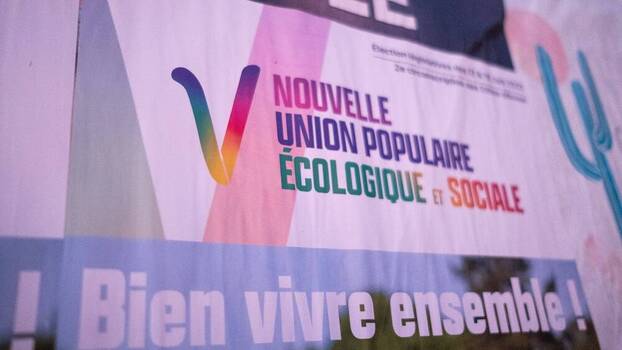
Unity Makes Strength?, a new study from the Rosa Luxemburg Foundation’s Brussels Office, aims to provide a brief analysis of the current state of affairs in the European Union in order to analyse the prospects for the French Left and the NUPES in the 2024 European Parliament election. For these upcoming elections, we seek to understand what the strategic interests are for the Greens (EELV), La France Insoumise (LFI), the Communist Party (PCF), and the Socialist Party (PS) in joining forces or competing alone.
Laura Chazel is an associate researcher at Sciences Po Grenoble, a research fellow at the Research Institute for Sustainability of Potsdam, and a post-doctoral researcher at Jagiellonian University in Krakow.
In the first part, we show that a new political period can be identified in Europe from March 2020 onwards, with the start of the COVID-19 pandemic and the war in Ukraine that began in February 2022 and reinforced the economic and social crisis that was taking place in Europe. Legitimate criticism have been made of the various national and European recovery plans put in place to deal with these crises. However, we argue that this new political cycle may open a (short) “window of opportunity” for left-wing forces. Indeed, during this period, we show that certain principles associated with the Left were briefly presented as solutions to these crises by the liberal hegemonic discourse that predominates in Europe (e.g. the (re)affirmation of the role of the welfare state; the need to abandon austerity logics).
In the second part, we propose a comparative analysis of the political programmes and votes in the European Parliament of EÉLV, LFI, PCF, and PS. We show that increasingly strong convergences can be identified on all policy issues, which led to the creation of a coalition between the four parties, the New Ecological and Social People’s Union (NUPES), and the establishment of a common programme for the 2022 French legislative elections. We also show that the divergences between them that are often highlighted by the mass media and the mainstream press — such as the position towards the EU and NATO — are reflected rather little in the voting behaviour of the different MEPs of EÉLV, LFI, and PS in the European Parliament during the last legislative term.
In the third part, we assess the prospects of the NUPES for the next European elections in 2024. We argue that, given the current tripartition of European party systems, an electoral alliance would be strategically desirable at the micro level (e.g. survival of the parties) and at the macro level (consolidation of a strong left-wing bloc capable of “storming heaven”) both in the short and long term.